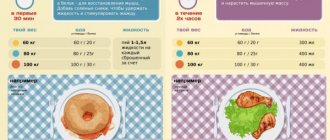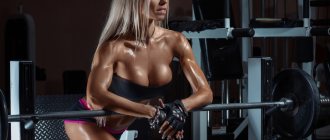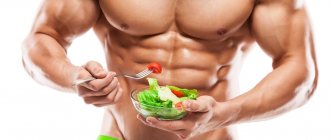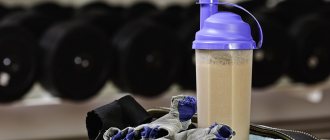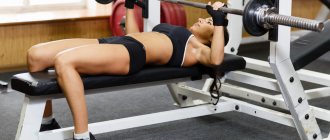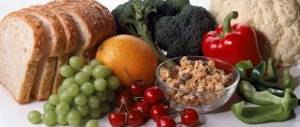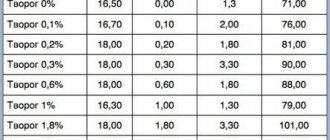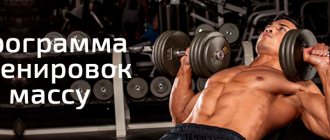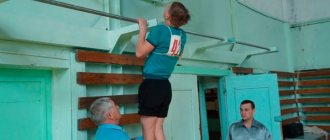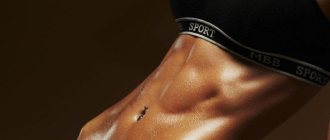When to eat after training?
Your diet should be varied and balanced. After any workout, you should eat no earlier than 20-30 minutes later, but it is not recommended to fast for more than an hour. Physical exercise depletes muscles, so they need to be “fed.”
If you don't eat anything, you can experience muscle wasting and shrinkage, but fat breakdown does not occur. Only when you have worked hard and fed the muscles, then the excess fat in the body is burned.
Basically, what kind of nutrition you should eat after training depends on what time of day you exercise.
Sports supplements for burning fat
To burn fat, you need to increase the number of calories you burn and eat right. It would be a good idea to use sports supplements that promote effective weight loss. The following complexes have proven themselves well.
- Fat burner
(for example, Thermogenic) – suppresses appetite, increases training performance and accelerates the breakdown of fat tissue. - L-carnitine
– increases the rate of fat breakdown and improves the transport of their breakdown products. - BCAA
(for example, Intra Fuel from SAN) - suppresses appetite, protects muscles from stress during training and activates fat breakdown processes. - Liquid protein
(for example, Syntha-6 from BSN) is an indispensable complex during regular training, containing the necessary amount of carbohydrates and healthy fats. Fully satisfies the body's nutritional needs. - Special vitamin and mineral complexes
(for example, for men - Opti-men, and for girls - Opti-Women) - allow you to completely compensate for the deficiency of vital substances necessary for the body's metabolic reactions.
Sports supplements are complexes with proven effectiveness. Their recipe is scientifically proven, the formulas are patented. They cannot be suspiciously cheap and are purchased exclusively in specialized stores. Before using supplements, you must make sure that there are no contraindications - chronic diseases of the liver, kidneys, cardiovascular system, diabetes mellitus and other diseases.
The first half of the day
If you plan to do strength training or jogging early in the morning, you should not do it on an empty stomach. You need to have a little snack, for example, eat a teaspoon of honey, a slice of bread or half a banana - this will be enough.
After your workout, be sure to have a hearty breakfast. Proper nutrition means that the day begins with porridge. It can be buckwheat, oatmeal or millet porridge with honey, fruits or vegetables, as you like.
If your workout takes place after breakfast, then at least an hour and a half should pass from the moment you eat. And after training, 30-40 minutes later, you should definitely have a small snack in the form of fruit or a protein product (kefir, eggs), but not too fatty.
Healthy fats are found in sufficient quantities for the body in nuts, dairy and meat products.
You need to avoid trans fats, which are found in non-natural foods such as sausage, butter, and fast food.
Exercise should take place between snacks and main meals. Distribute your routine:
- Breakfast
- Snack
- Dinner
- Snack
- Dinner
- Snack (optional)
Between breakfast and snack or snack and lunch, a minimum of 2, maximum of 3 hours should pass. Then it will be easier for you to plan not only your sports activities, but the whole day in general.
Why is it useful?
Rice is considered a dietary product. It contains almost no fat and little protein, but a lot of carbohydrates. Moreover, they are easily absorbed, providing the body with energy. Rice porridge is recommended for people with gastrointestinal diseases, children, and athletes. Rice is good for women who want to lose weight. After all, it removes water and toxins from the body. In addition, it has low calorie content, so its use does not interfere with weight loss.
The benefits of this product are explained by its composition. It does not contain gluten, which is found in all other cereals and can cause allergic reactions. At the same time, it contains many useful substances:
- B vitamins, which are involved in many biological processes;
- Vitamins A and E, which are antioxidants;
- Amino acids that serve as a source of muscle mass gain;
- Lecithin, necessary for proper brain function;
- Starch, which is a source of energy;
- Minerals important for life, for example, potassium, magnesium, calcium.
Rice is a slow carbohydrate. It does not increase blood sugar levels, but serves as a source of energy, which is very important before and after physical activity.
Afternoon
Choose a training time that is convenient for you, but make sure that there is a gap of at least 30-40 minutes between meals and training time.
For lunch, give preference to long-cooked side dishes (mostly cereals), lean meat or fish and vegetable salad. For dinner, boiled or baked meat (fish) + vegetable salad are suitable.
Eating after a workout helps restore muscles and burn fat in the body. Even if you train late in the evening, a glass of kefir or low-fat cottage cheese 1-1.5 hours before bedtime will not harm your figure at all, but even vice versa.
Cooking features
Any healthy product can be ruined by improper preparation. The easiest way to cook rice is in bags - it makes a crumbly porridge. It is recommended to pre-soak its other types in cold water, possibly overnight. This is especially important for unpolished varieties, as they take a long time to prepare.
After soaking, this cereal will be ready in 20-25 minutes. It is recommended not to wait until the water is completely absorbed; as soon as the grains become soft, you need to drain it in a colander. Long grain rice turns out fluffy, it is well suited for salads, pilaf, and a side dish for meat. Round-grain varieties become viscous when cooked, so it is better to prepare porridges, casseroles or puddings from them.
To increase the beneficial properties of rice, you can cook it with vegetables. It’s better not to add salt. It can be replaced with dried garlic or other spices.
What to eat after a workout?
On the day of training, you need to eat well and properly.
If you are training to lose weight, then 30-40 minutes after training you can eat mainly protein foods, in the first half of the day it can be meat, fish, eggs, and it is better to eat cottage cheese, natural yogurt and kefir in the second half of the day.
To lose weight you need to eat healthy, balanced and with a slight calorie deficit.
If your physical exercises are aimed at gaining muscle mass, then you can and should eat a carbohydrate-protein snack (if the workout took place after breakfast/lunch/dinner), or a full meal (if the workout took place before breakfast/lunch/dinner) immediately after the workout .
Within 30 minutes after training, the “carbohydrate-protein window” opens, and therefore you need to eat food at this time, then muscle growth is guaranteed.
Some people consume protein after a workout. Whether your body needs it is up to you to decide. If you apply the acquired knowledge correctly and are not lazy, then your body will predominantly contain muscle, not fat.
Basic principles of nutrition when losing weight
To be slim you need to eat. Losing weight is not about refusing to eat, but about proper nutrition. The following principles must be adhered to.
- The amount of calories consumed should be less than the amount expended by approximately half. For example, if 500 kcal were spent in the gym, then about 250 kcal can enter the body. The created deficiency will lead to effective burning of fat deposits.
- You need to eat often and in small portions. Fitness nutrition involves eating 5-7 times a day. The volume of 1 serving should contain approximately 60 g of protein and 40 g of carbohydrates for strength exercises, and 60 g of carbohydrates and 40 g of protein for anaerobic exercises. The specified amount of nutrients is completely absorbed and consumed. On the contrary, infrequent or plentiful nutrition forces the body to store nutrients in reserve.
- Reducing fat intake. You need to remember that 1 gram of fat is 9 kcal. The body's vital daily requirement for fat is 0.5 - 0.7 g per 1 kg of body weight. Thus, with an average weight of 70 - 75 kg, a person needs about 50 g of fat per day. Exceeding this amount slows down metabolism and leads to obesity.
Important! For your diet, it is better to choose baked or steamed dishes. After all, the process of frying, boiling or prolonged stewing leads to the destruction of vitamins and nutrients in food.
Mistakes that prevent you from losing weight
Faced with the problem of excess weight, many people forget that unnecessary kilograms have been accumulating for months, or even years. It is impossible to get rid of them within 1–2 weeks. It will be even more difficult to maintain the achieved weight and avoid making annoying weight loss mistakes. The most common of them are 8 misconceptions.
- Total starvation.
- Relying on “miracle remedies” for weight loss.
- Irregular meals.
- Compliance with mono-diets.
- Refusal of breakfast or dinner.
- Insufficient physical activity.
- Low fluid consumption.
- Expecting quick results.
Awareness of the processes occurring in the body, a personal fitness trainer and self-discipline will help you avoid weight loss mistakes.
Water
Throughout the day, according to most nutritionists, you need to drink 1.5-2 liters of pure, non-carbonated water. This helps eliminate toxins, fills the body with energy and is good for the digestive system.
During training, you also need to drink clean water in small sips, 1-2 sips every 5-10 minutes.
After physical exercise, you are exhausted, you are thirsty, but you should not drink a full glass in one gulp. Water after training is necessary, but first you need to restore your breathing, walk a little, drink 1-2 sips. Only after 30-40 minutes can you drink as much as you need.
Eat healthy and balanced, drink clean water, exercise and be healthy!
